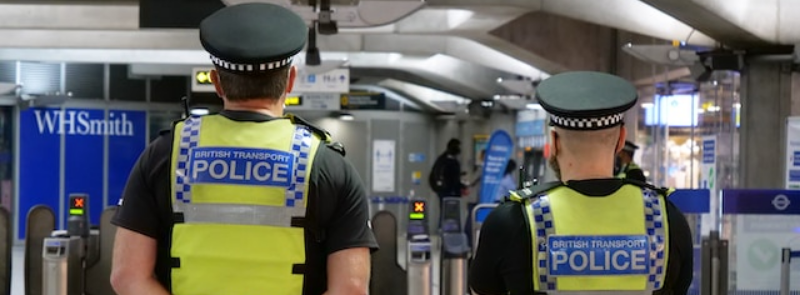
When It Occurs
Every September 7th
Official Website
Timeline
Days Passed (899)
# Hashtags
#InternationalDayOfPoliceCooperation #CrossBorderPolice
In December 2022, the United Nations General Assembly officially assigned September 7 as the International Day of Police Cooperation. The inaugural celebration occurred on September 7, 2023, coinciding with the 100th anniversary of Interpol. This first commemoration placed a spotlight on the crucial role of women in policing.
According to the United Nations, the fundamental tenets of police cooperation, including accountability, transparency, and respect for diversity, are crucial for revitalizing a social contract grounded in human rights. Additionally, the UN contends that community-oriented policing plays a pivotal role in fostering trust and enhancing safety.
History and Background
- Establishment: The International Day of Police Cooperation was established to emphasize the importance of cross-border police collaboration in combating crime, terrorism, and other global security threats.
- Organizations Involved: Key organizations involved in international police cooperation include Interpol (International Criminal Police Organization), Europol (European Union Agency for Law Enforcement Cooperation), and various national police forces.
Objectives and Significance
- Enhancing Security: The primary goal is to enhance global security by fostering cooperation and collaboration among police forces from different countries.
- Combating Transnational Crime: Addressing and combating transnational crimes such as human trafficking, drug smuggling, cybercrime, and terrorism through coordinated efforts.
- Promoting Best Practices: Sharing knowledge, expertise, and best practices in law enforcement to improve the effectiveness of police work globally.
- Building Relationships: Strengthening relationships and trust among international police organizations and fostering a spirit of solidarity and mutual assistance.
Celebrations and Activities
- Conferences and Workshops: Law enforcement agencies and international organizations often hold conferences, workshops, and seminars to discuss issues related to international police cooperation and to share best practices.
- Training Programs: Specialized training programs and courses are organized to enhance the skills and knowledge of police officers in areas such as cybercrime investigation, counter-terrorism, and forensic science.
- Joint Operations: Coordination of joint operations and initiatives to tackle specific criminal activities, showcasing the benefits and successes of international cooperation.
- Public Awareness Campaigns: Efforts to raise public awareness about the importance of police cooperation in ensuring safety and security, often through media campaigns and educational programs.
- Commemorative Events: Ceremonies and events to honor and recognize the efforts and achievements of police officers involved in international cooperation.
Key Organizations
- Interpol: Facilitates international police cooperation by providing a platform for information exchange, criminal databases, and operational support to member countries.
- Europol: Focuses on supporting EU member states in their fight against serious international crime and terrorism through intelligence sharing and operational coordination.
- UNODC (United Nations Office on Drugs and Crime): Works to combat transnational organized crime and strengthen international cooperation through various programs and initiatives.
- Regional Organizations: Various regional organizations and alliances also play significant roles in promoting police cooperation, such as ASEANAPOL (ASEAN Chiefs of Police) and AFRIPOL (African Union Mechanism for Police Cooperation).
Impact and Global Participation
- Improved Crime Detection and Prevention: Enhanced cooperation leads to better detection, investigation, and prevention of crimes that cross international borders.
- Resource Sharing: Sharing resources, technology, and expertise among police forces improves overall efficiency and effectiveness.
- Strengthened Legal Frameworks: Development and harmonization of legal frameworks to facilitate international cooperation in criminal matters.
Challenges and Future Directions
- Legal and Jurisdictional Issues: Differences in legal systems and jurisdictional boundaries can pose challenges to effective cooperation.
- Information Sharing: Ensuring timely and secure information sharing while respecting privacy and data protection laws.
- Capacity Building: Continuous need for capacity building and training to keep up with evolving criminal tactics and technologies.
- Technological Advancements: Leveraging advancements in technology, such as artificial intelligence and big data, to enhance police cooperation and crime-fighting capabilities.
How to Participate
- Engagement by Law Enforcement: Police departments and agencies can engage in international cooperation by participating in joint operations, attending international conferences, and collaborating on training programs.
- Public Support and Awareness: Citizens can support international police cooperation by staying informed about global security issues and supporting initiatives that promote safety and security.
- Policy Advocacy: Advocating for policies and legislation that facilitate international police cooperation and address transnational crime effectively.
The International Day of Police Cooperation underscores the critical importance of global collaboration in law enforcement. It highlights the need for a united approach to tackling complex and transnational criminal activities, ensuring a safer and more secure world for all.


